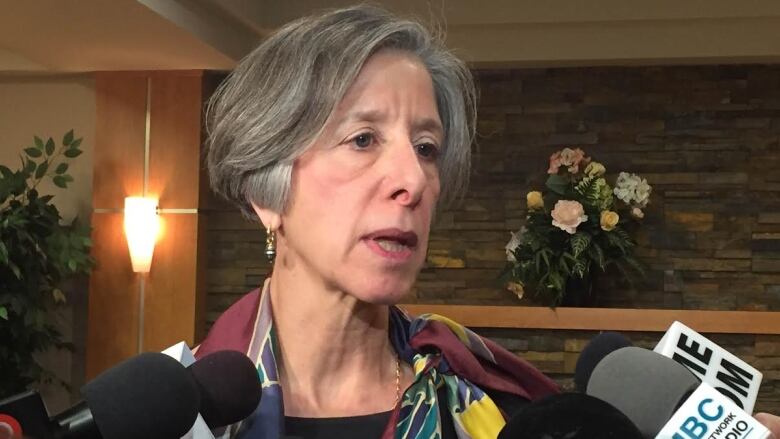New Sask. HIV strategy aimed at stopping new cases
Province's HIV infection rate 2 times national average

More than 150 doctors, nurses and community activists gathered in Saskatoon today to talk about the province's latest strategy to tackleHIV and AIDS.
HIV has long been a problem in Saskatchewan. The HIV rate of infection is two times higher than the national average, and more than 1500 people have been infected with the virus in the last ten years.
Today, the Ministry of Health unveiled its latest long-term plan to stop the spread of HIV and AIDS. The multi-pronged approach willfocus on rural and remote communities a growing source of infections.
- Sask. doctors call for state of emergency over HIV rates
- HIV rates 2 times higher in Sask. than national average
"It's the nature of injection drug use and the mobility of people who move between urban and rural environments," said the province's Deputy Chief Medical Health Officer Dr. Denise Werker. "It doesn't mean that we forget about the urban environment, but we have to prioritize the areas in rural and remote."
Dr. Werker also said that the province is putting more of a focus on cultural sensitivity, and how the medical system treats patients with HIV. In 2015, 81 per cent of peoplenewly infected with HIV self-identified as Aboriginal.
"Unfortunately, we have heard a number of times that the people who are most vulnerable are not treated well in our health care system," she said. "In addition, HIV has a stigma of its own. We need to be more patient-centred, and that involves providing care in a way that's culturally sensitive."
First steps
Last month, a group of doctors in the province asked for a public health state of emergency over the HIV rate in the province, comparing Saskatchewan's infection rate with that of developing countries.
Now, one of those doctors said he's happy with what he's been hearing.
"I think we're encouraged," said Dr. Kris Stewart, an internal medicine physician that focuses on HIV. "We're seeing a change in tone, perhaps. Maybe a little more focus."
Stewart said it's vital that HIV-positive people get into treatment programs as soon as possible.
"I think there are huge opportunities in what I call treatment as prevention," he said. "Whenever I hear about people who are HIV-positive, that have not been offered care, and it's been several years, that's a huge failure in our system."
Ultimately, he wants to see some firm action plans drawn up.
"I hope to hear some concrete next steps, and a commitment to treat this as an emergency and to be flexible," he said. "So, when we identify an unmet need, if there's no new resources, we need to be able to shift resources."












_(720p).jpg)


 OFFICIAL HD MUSIC VIDEO.jpg)
.jpg)



























































































